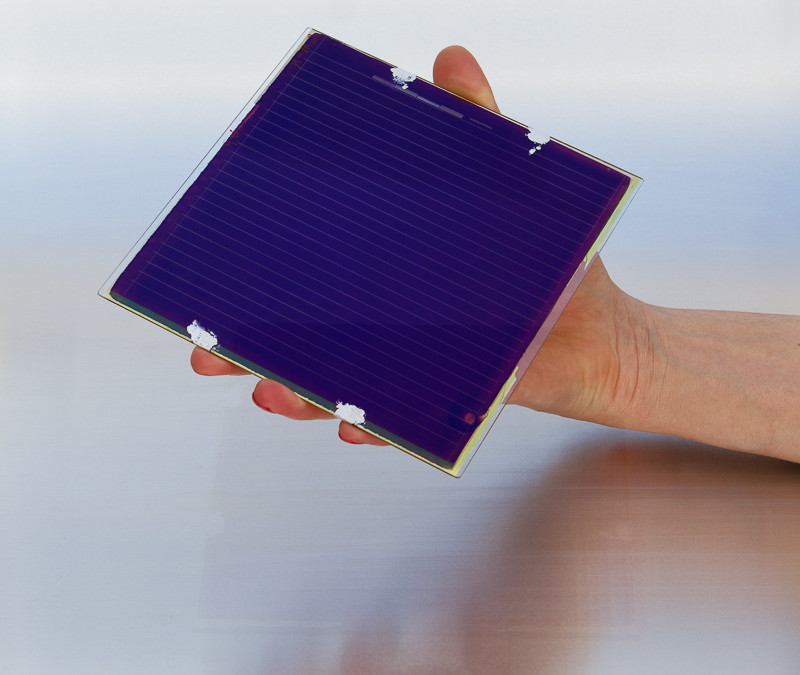Imec, a Belgium-based research center of nano-electronics, and the Solliance consortium, an international R&D organization from the Netherlands, Belgium and Germany working in thin film solar PV energy, announced that their 4x4cm² perovskite module has reached a conversion efficiency of 12.4%. This improves the previous record of 11.3%, which was also set be the two entities in July 2015.
The result was confirmed by Germany’s Fraunhofer Institute for Solar Energy Systems ISE.
Imec claims that the module has a very high aperture area efficiency and, at the same time, a high operational device stability. The panel consists of eight solar cells connected in series by using a low area loss interconnection technology based on laser and mechanical patterning. Thanks to this technology, Imec said, around 90% of the module’s designated illumination area of 16cm2 is used to produce power.
“In a few years' time,” said Tom Aernouts, Solliance program manager and group leader for thin-film photovoltaics at Imec, “we have made rapid progress not only on conversion efficiencies for single cells but are now also consolidating this at module level for this type of thin-film photovoltaics. Looking ahead, within Solliance we’ve set an aggressive roadmap for larger-area low cost processing and long-term stability that will advance this technology beyond the lab.”
Imec and Solliance said that this module will eventually be suitable for seamless integration in customized PV systems.
Incremental power conversion efficiencies over the past few years have been the hallmark of perovskite development, with further improvements required to make thin-film perovskite PV applications a viable option at large scale for the solar industry.
Imec has itself stated that it is targeting conversion efficiencies in the region of 20% for perovskite thin film PV cells, and so still has a way to go before the technology can be scalable for industrial applications such as building integrated photovoltaics (BIPV).
This content is protected by copyright and may not be reused. If you want to cooperate with us and would like to reuse some of our content, please contact: editors@pv-magazine.com.




By submitting this form you agree to pv magazine using your data for the purposes of publishing your comment.
Your personal data will only be disclosed or otherwise transmitted to third parties for the purposes of spam filtering or if this is necessary for technical maintenance of the website. Any other transfer to third parties will not take place unless this is justified on the basis of applicable data protection regulations or if pv magazine is legally obliged to do so.
You may revoke this consent at any time with effect for the future, in which case your personal data will be deleted immediately. Otherwise, your data will be deleted if pv magazine has processed your request or the purpose of data storage is fulfilled.
Further information on data privacy can be found in our Data Protection Policy.